Thomas Gabriel | |
|---|---|
 The composer in 2015 | |
| Born | 25 August 1957 |
| Education | Folkwang Hochschule |
| Occupations |
|
Thomas Gabriel (born 25 August 1957) is a German church musician, composer and arranger.
Thomas Gabriel | |
|---|---|
 The composer in 2015 | |
| Born | 25 August 1957 |
| Education | Folkwang Hochschule |
| Occupations |
|
Thomas Gabriel (born 25 August 1957) is a German church musician, composer and arranger.
Born in Essen, [1] Gabriel studied Catholic church music at the Folkwang Hochschule , [2] organ with Sieglinde Ahrens and Josef Bucher. [3] From 1983 to 1986 he served as cantor at the Liebfrauenkirche in Recklinghausen. He worked freelance from 1987 to 1988 for the West German Radio and the Ruhrfestspiele in Recklinghausen. From 1989 to 1991 he was district cantor at St. Martin, Idstein, [4] where he founded a youth choir called Martinis in 1988. [5] From 1992 to 1997 he was regional cantor in Saarbrücken. Since 1998, he has been cantor for the Regional Institute of Sacred Music in the Diocese of Mainz with a focus on Neues Geistliches Lied (NGL, New sacred song), for the deaneries Offenbach, Rodgau and Seligenstadt, at the church St. Marcellinus und Petrus ). [2]
Gabriel gives many concerts as an organist, harpsichordist and pianist, particularly as a member of the Thomas Gabriel Trio, [2] whose artistic focus is on jazz arrangements of the music of Johann Sebastian Bach.

As a composer, Gabriel tries to combine traditional church music with elements from jazz and pop. [4] He composed in 2005 Missa mundi (Mass of the world) for the final mass of the World Youth Day in Cologne on 21 August 2005, representing five continents in style and instrumentation: a European Kyrie influenced by the style of Bach, a South American Gloria with guitars and pan flutes, an Asian Credo with sitar, an African Sanctus with drums, and an Australian Agnus Dei with didgeridoos. [6] [7] It was premiered by a project choir from the Würzburg Cathedral, conducted by Martin Berger, with Gabriel at the keyboard. [8] He participated in the project Mainzer Bistumsmesse (Mass of the Diocese of Mainz), a collaboration of six regional cantors to create a mass in German for choir, a high voice (children's choir or soprano) and organ. Dan Zerfaß composed Herr, erbarme dich, Nicolo Sokoli Ehre sei Gott, Thomas Gabriel Ich glaube an Gott, Andreas Boltz Gottheit tief verborgen, Ralf Stiewe Heilig, and Ruben J. Sturm Lamm Gottes. [9]

Missa brevis usually refers to a Mass composition that is short because part of the text of the Mass ordinary that is usually set to music in a full Mass is left out, or because its execution time is relatively short.
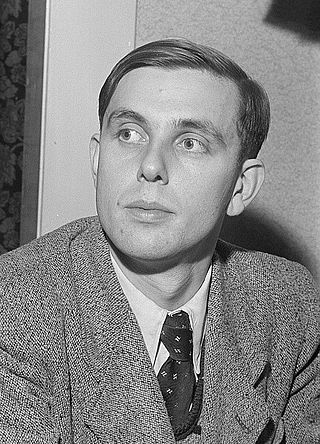
Diethard Hellmann was a German Kantor, composer and academic teacher, first in Leipzig at the Friedenskirche and the Musikhochschule, then from 1955 in Mainz at the Christuskirche and the Peter Cornelius Conservatory, finally in Munich where he was president of the Musikhochschule München from 1981 to 1988. He was known for a weekly Bach cantata in Mainz, broadcast by SWR.
A Christmas cantata or Nativity cantata is a cantata, music for voice or voices in several movements, for Christmas. The importance of the feast inspired many composers to write cantatas for the occasion, some designed to be performed in church services, others for concert or secular celebration. The Christmas story, telling of music of the angels and suggesting music of the shepherds and cradle song, invited musical treatment. The term is called Weihnachtskantate in German, and Cantate de Noël in French. Christmas cantatas have been written on texts in several other languages, such as Czech, Italian, Romanian, and Spanish.
The Dresdner Kammerchor is a mixed chamber choir which was founded in 1985 by Hans-Christoph Rademann in Dresden and is still conducted by him. The semiprofessional ensemble of about 40 singers has appeared internationally.
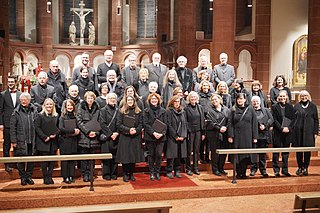
The Chor von St. Bonifatius is a German mixed choir, the church choir of the parish St. Bonifatius, Wiesbaden. It was founded in 1862 as a male choir and was a mixed choir from 1887. From 1981 to 2018, it was conducted by Gabriel Dessauer, who founded two children's choirs. The group sang the first performance in Germany of John Rutter's Mass of the Children and performed in Azkoitia, San Sebastián, Görlitz, Bruges, Macon and Rome. Colin Mawby composed for the choir the Missa solemnis Bonifatius-Messe for the 150th anniversary, celebrated on 3 October 2012. From 2019, the choir has been conducted by Roman Twardy who conducted in his first concert Dvořák's Stabat Mater. On 1 January 2022, Johannes Schröder became church musician. He conducted as his first choral concert Verdi's Requiem in an arrangement for small ensemble.
Andreas Boltz is a German church musician and composer. From autumn 1993 until 2011, he was the Regional Cantor of the diocese of Mainz in Darmstadt. He was awarded the Premio Speciale in 1992 at the International Composers Competition in Trieste. Since June 2011, he has been cathedral music director at the Frankfurt Cathedral.

Dan Zerfaß is a German classical organist, the cantor at the Worms Cathedral and academic teacher.

L'arpa festante is a German chamber orchestra, specializing in the revival and performance of unknown works, especially from the Baroque era. It was established in Munich in 1983 by Michi Gaigg, who also led the ensemble as concertmaster until 1995. The ensemble takes its name from Giovanni Battista Maccioni's dramatic cantata L'arpa festante which was first performed in 1653, inaugurating what was to become the Bavarian State Opera.
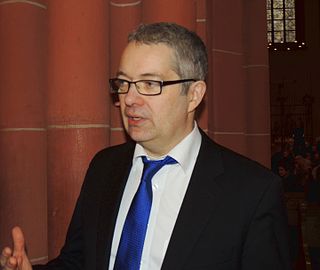
Peter Reulein is a German composer, organ improviser, academic teacher and church musician, from 2000 at the church Liebfrauen in Frankfurt am Main. In 2016 he composed for the Catholic Diocese of Limburg the Franciscan oratorio Laudato si'.

Eugen Eckert is a German social worker, minister, singer-songwriter and academic teacher. He is known for his lyrics for new spiritual songs, and his oratorios and musical plays.
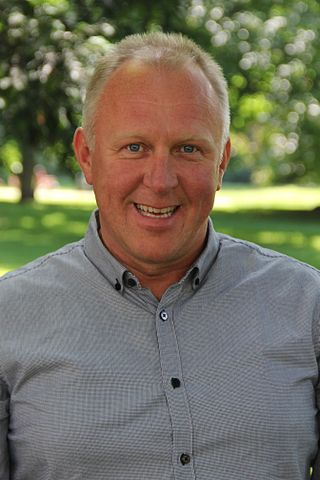
Patrick Dehm is a German Catholic theologian, supervisor and clinical Gestalt therapist. He and his brother founded the Eugen Dehm foundation, supporting a holistic health concept, in memory of their father.
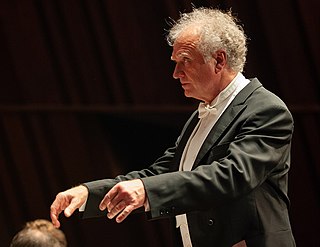
Ralf Otto is a German conductor, especially known as a choral conductor and academic teacher. He founded the Vokalensemble Frankfurt, focused on contemporary music and winning competitions including Let the Peoples Sing. Since 1986, he has been director of the Bachchor Mainz, with a tradition of performing Bach cantatas in broadcast church services. He added late romantic and contemporary works to their repertoire and made international tours with them. They made world premiere recordings of some cantatas by Bach's oldest son, Wilhelm Friedemann Bach, among other recordings. Otto was professor of choral conducting at the Folkwang Hochschule from 1990 to 2006, when he took the same position at the Hochschule für Musik Mainz.

The Missa angelica is a mass composed by Józef Świder in 1998. He scored it for soprano or tenor solo, a four-part choir, string orchestra and percussion. He also wrote a version for women's choir and keyboard instrument. It was published by Carus-Verlag in 2009.

The Missa brevis, Op. 102, is a Latin mass of short duration composed by Knut Nystedt in 1984. He scored it for a mixed choir a cappella. It was also published by Carus-Verlag in 2003.
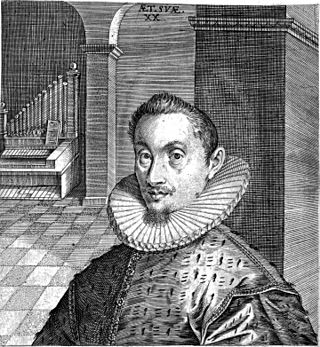
Dixit Maria is a motet for four voices by Hans Leo Hassler. It is part of his collection Cantiones sacrae published in 1591. It sets a verse from the narration of the annunciation in Latin. Hassler based a mass on the motet, Missa super Dixit Maria.
Bruder Martin is an oratorio composed by Thomas Gabriel to a libretto in German by Eugen Eckert. The work in seven scenes and a prologue is based on the life of Martin Luther. It was written for the 500th anniversary of the Reformation in 2017. The composition is set for narrator, soloists, mixed choir, band and orchestra, and includes both Luther hymns and pop ballads. Bruder Martin was premiered open air in Tecklenburg on 17 September 2017, with the performers dressed in period costumes. It was published by Strube Verlag.
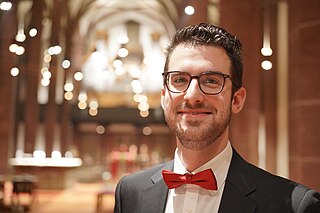
Johannes M. Schröder is a German organist, composer and Catholic church musician. After several years responsible for the church music at the Westerwälder Dom, he moved to St. Bonifatius, Wiesbaden. He is also a lecturer and a music editor.

"Gott hat mir längst einen Engel gesandt" is a 1996 Christian song with text by Eugen Eckert, set for a four-part choir by Thomas Gabriel as part of the rock oratorio Daniel. It became a hymn of the genre Neues Geistliches Lied, which is contained in several hymnals and songbooks.

Messe brève no. 7 is a missa brevis in C major by Charles Gounod, composed in 1877 for two vocal parts and organ, and expanded in 1890 to four choir parts and organ. It is subtitled "in C aux chapelles".
Die Weihnachtsgeschichte, Op. 10, is an oratorio by Hugo Distler, composed in 1933. He set Biblical texts about the nativity of Jesus in German, interspersed with different settings of stanzas of the hymn "Es ist ein Ros entsprungen", for soloists and choir a cappella. A critical edition was published by Carus-Verlag in 2015.